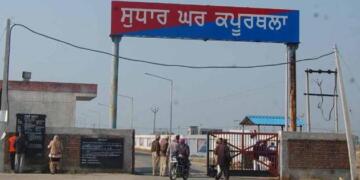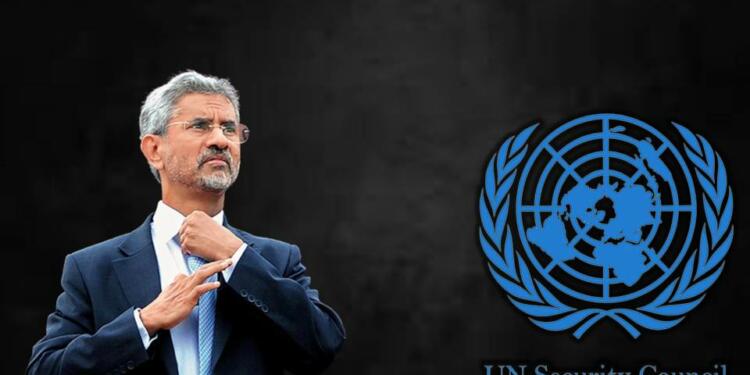The 77th session of the United Nations General Assembly (UNGA 77) convened on Tuesday, 13 September 2022 and the high-level General Global Debate started on 20 September 2022.
Considering the upheaval in global politics, this year a significant change is reflected in the world of the UNO. Due to the rise of Global South Countries and decline of trust in the west, many countries are advocating for overhaul change in the United Nations’ governance structure.
Now, countries are vociferously advocating for democratisation of the UN’s powers. In the global debate of power distribution of world governance, the External Affairs Minister, Dr S. Jaishankar is leading the charge from India.
Jaishankar’s Statement at UNGA
At the 77th session of the UN General Assembly (UNGA), India’s foreign minister, S. Jaishankar, spoke about social, economic, security, environmental and political problems the world is currently facing.
Greeting on behalf of 1.3 billion plus people, the minister highlighted the session’s theme – “A Watershed Moment: Transformative Solutions to Interlocking Challenges”, in the framework of seriousness.
Speaking about India’s confident and resurgent rise, the minister enumerated five pledges of development. Namely:-
- We are resolved to make India a developed country in the next 25 years. For the world, that creates more capacities for global good.
- We will liberate ourselves from a colonial mind-set. Externally, this means reformed multilateralism and more contemporary global governance.
- Our rich civilizational heritage will be a source of pride and strength. This includes care and concern for the environment that is ingrained in our traditional ethos.
- We will promote greater unity and solidarity. This expresses a coming together on global issues, such as terrorism, pandemics or the environment.
- We will instil consciousness of duties and responsibilities. This applies to nations, as much as it does to citizens.
Talking about the confluence of national and global good, he said, “It is this conviction that led us to supply vaccines to over a 100 nations. Similarly, our evacuation operations in HADR (Humanitarian Assistance and Disaster Relief) situations always had room for other nationals in distress. Even as we meet our own development targets, India offers partnerships to our brothers and sisters in Asia, in Africa and Latin America. And we do so based on their needs and their priorities. Today, that focus is on green growth, better connectivity, digital delivery and accessible health. Our solidarity is not just in words; you can see them in 700 projects across the world.”
Read more: Jaishankar roars as India overtakes Britain to become the 5th largest economy
We Are On People’s Side
While talking about India’s aspiration behind independence foreign policy, he said, “As the Ukraine conflict continues to rage, we are often asked whose side we are on. And our answer, each time, is straight and honest. India is on the side of peace and will remain firmly there. We are on the side that respects the UN Charter and its founding principles. We are on the side that calls for dialogue and diplomacy as the only way out. We are on the side of those struggling to make ends meet, even as they stare at the escalating costs of food, of fuel and fertilizers.”
Furthermore, showing mirror to the so-called globalised countries, he said, “the international community must rise above narrow national agendas. India, for its part, is taking exceptional measures in exceptional times.”
His indication reflected India’s constant support to crisis facing countries. For example, India has sent 50,000 metric tons of wheat and multiple tranches of medicines and vaccines to Afghanistan. We helped Sri Lanka with extended credits of 3.8 billion dollars for fuel, essential commodities and trade settlement.
We have also supplied 10,000 metric tons of food aid and vaccine shipments to Mynamar. Whether it is disaster response or humanitarian assistance, India has supported countries in every possible manner.
Read more: It is my moral duty to get Indians the best Deal: Dr. S Jaishankar
Global Leader in Climate Cause
When the west constantly pushes for equality principles in climate related measures despite being the top contributor of climate change, India is leading the charge in bringing climate back to track.
Talking about climate measures, Jaishankar said, “Climate action and climate justice are particularly noteworthy in this respect. In their pursuit, India has worked with partners on the International Solar Alliance, the One Sun-One World-One Grid initiative and the Coalition for Disaster Resilient Infrastructure.”
He also highlighted India’s commitment to fight climate change under the UNFCCC (United Nations Framework Convention on Climate Change) and the Paris Agreement. It was also made clear that we do so not based on equality principle but on the principle of common but differentiated responsibilities and respective capabilities, in the light of different national circumstances.
On the UN Security Council reform, politicisation of terrorism issue and unity of global south, the minister spoke a lot about global politics. The address reflected the statement of global power and India’s confidence to take the leadership charge of the world.
United Nations was Jaishankered
The diplomat turned politician, S. Jaishankar efficiently took the foreign policy of the nation to a newer height. The impact, former foreign minister, Sushma Swaraj, created; it was very difficult to excel that. But, S Jaishankar has now set the new benchmark in diplomacy.
In the global political upheal, more polarised and conflict prone world, India, under Jaishankar, efficiently played independent foreign policy.
In his 11-day visit to the US, he was in New York from September 18 to 24 and in Washington DC, from September 25 to 28.
In New York, S Jaishankar held 40 bilateral meetings with world countries’ leaderships. He attended various groupings’ meetings with Quad, BRICS, G4, India-Caricom, G77, L69, and India-CELAC Quartet. He also held tri-lateral meetings with IBSA, India-France Australia, India-Indonesia-Australia and India-France-UAE.
He talked with presidents of three countries, two addresses to UN organizations (UNGA and UNSC) and held discussions with the PM of one country. It is also significant that he did not hold a single talk with the leaders from China and Pakistan.
EAM's New York visit in Numbers:
-40 Bilateral meets
-5 Groupings:Quad, Brics, G4, India-Caricom, G77, L69, India-CELAC Quartet
-4 Trilaterals: IBSA, India France Aus, India Indonesia Aus, India France UAE
-3 Prez
-2 Address to UNGA, UNSC
-1 PM
-0 bilaterals with China, Pak FMs https://t.co/TmARIFAqCm pic.twitter.com/l33rzGAP9t— Sidhant Sibal (@sidhant) September 25, 2022
The 77th session of UNGA proved to be one of the successful meetings of India. It not only showcased India’s rising global stature but also reflected transformational change in our foreign policy. Ditching the hesitancy of the past, we now look to take global responsibility.
We are firm and confident to take national interest to the global stage and argue for people’s cause. In the divided bipolar world, we talk to promote multilateralism and power re-balancing. All and all, the 77th session of the United National General Assembly (UNGA) was Jaishankered as he took national interest to the top of the table.
Support TFI:
Support us to strengthen the ‘Right’ ideology of cultural nationalism by purchasing the best quality garments from TFI-STORE.COM























